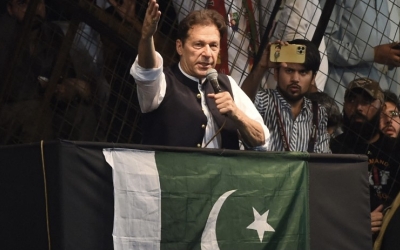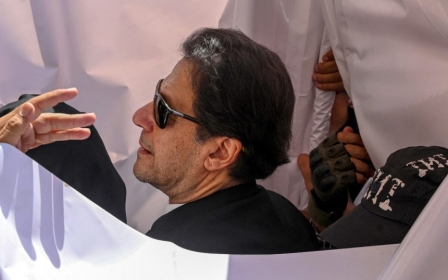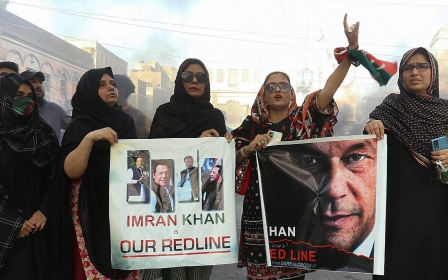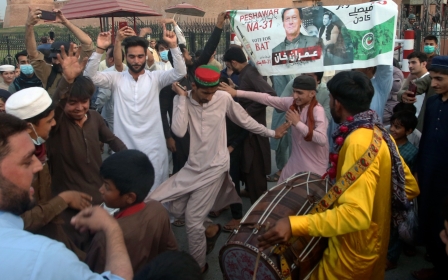Pakistan urged to release brother of pro-Imran Khan human rights lawyer
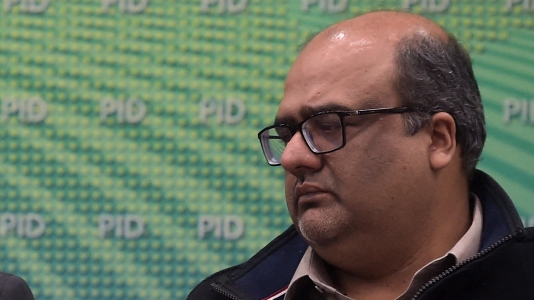
Journalists, human rights figures, and British MPs are calling on Pakistani authorities to release the brother of prominent human rights lawyer Shahzad Akbar, several days after he was believed to have been taken from his home and arbitrarily detained.
Shahzad said in a tweet on Sunday, that while he was not currently in the country, his house in Islamabad had been raided and his younger brother, Murad, was "kidnapped" by dozens of armed police and paramilitary rangers and is being held incommunicado.
The letter was published on Wednesday with signatories including former Channel 4 New reporter Jon Snow, former Guardian editor-in-chief Alan Rusbridger, Middle East Eye writer Peter Oborne and MPs Chris Bryant and David Davis.
"We call on Pakistani authorities to immediately release Murad Akbar, who we believe is arbitrarily detained and at risk of torture, disappearance and death," said the letter, addressed to UK Foreign Secretary James Cleverly.
"We also call on the British Government, the European Union, and the wider international community to seek Murad's immediate release, and condemn this appalling act of intimidation against a renowned human rights defender."
New MEE newsletter: Jerusalem Dispatch
Sign up to get the latest insights and analysis on Israel-Palestine, alongside Turkey Unpacked and other MEE newsletters
Shahzad, who previously served as an advisor in the government of former prime minister Imran Khan, told MEE that he believes the detention of his brother is an intimidation tactic to lure him in to become a witness in a case against Khan.
"He had nothing to do with politics or public life and has serious health and mental health issues," Shahzad, a legal resident of the UK, said of his brother Murad.
"Now after three days, there is no news of him and his whereabouts as in many cases of enforced disappearances there is complete deniability."
Shahzad said that this is a critical moment and that in his own experience of dealing with enforced disappearances, the first couple of weeks is the best chance at securing a person's release.
"If you don't succeed during that time, then I'm afraid it's [going to be] a long disappearance, and it just goes unchecked," he said.
The move against Murad comes as legal challenges continue to mount for the former prime minister Khan, weeks after his arrest on 9 May caused his supporters to storm key military installations including the army headquarters in protest.
Dozens of former legislators with Khan's Tehreek-e-Insaf (PTI) party have distanced themselves from the former premier since. Khan and his supporters allege that the country's military is forcing members of PTI to step down from the party.
And more than 4,000 of his supporters have been arrested in a nationwide crackdown, including PTI senior leadership and journalists.
One such journalist, Sami Abrahim, was released and returned home on Tuesday after having gone missing for a week. The whereabouts of another journalist, Imran Riaz Khan, still remain unknown after he went missing three weeks ago.
In numerous previous periods in Pakistan, individuals such as journalists and human rights activists have been arbitrarily detained, arrested or have gone missing, including during Khan's own tenure as prime minister.
The current situation has concerned right groups, as Pakistan is planning to hold trials before military courts which are closed to the media and other observers.
Several government ministers also said a proposal was being considered to ban Khan’s party, a move that will likely cause further political disarray in a country that is facing imminent economic default, with its currency dropping 40 percent against the US dollar since last year.
"The place has turned into a complete tyranny without any rule of courts and courts are under attack as well," Shahzad said.
Middle East Eye delivers independent and unrivalled coverage and analysis of the Middle East, North Africa and beyond. To learn more about republishing this content and the associated fees, please fill out this form. More about MEE can be found here.


